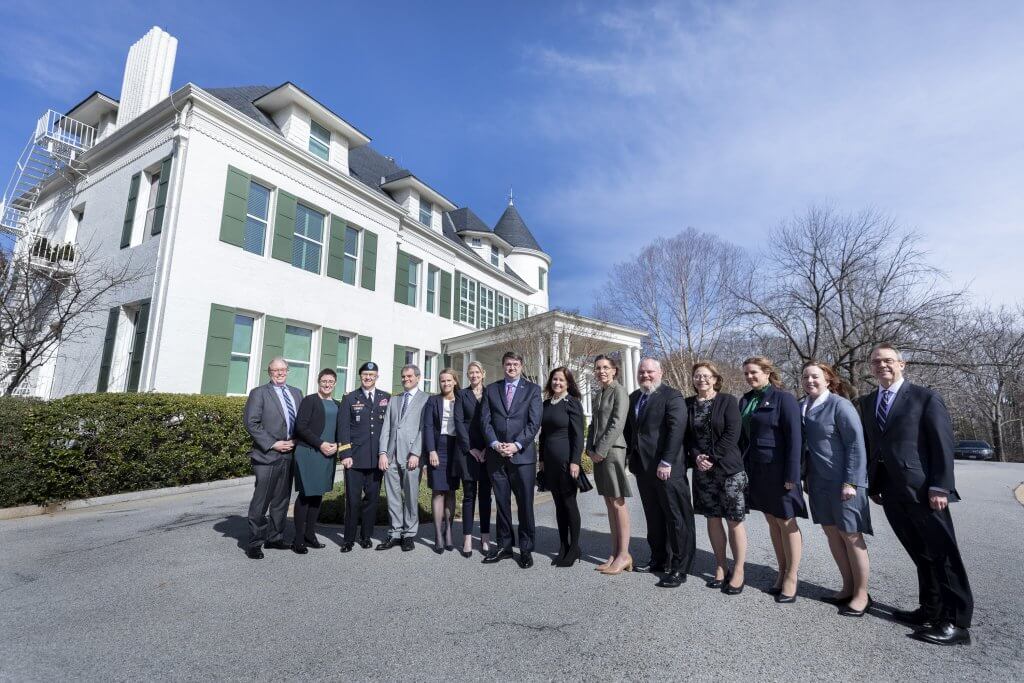Second lady Karen Pence is deploying a familiar tactic to learn about veteran suicide: listening.
Mrs. Pence was appointed lead ambassador earlier this year for a new nationwide strategy to raise awareness about mental health, connect veterans to federal and local resources and facilitate research about suicide. PREVENTS (President’s Roadmap to Empower Veterans and End a National Tragedy of Suicide) is a three-year plan stemming from President Trump’s signing of an executive order last year directing the Departments of Veterans Affairs, Defense, Health and Human Services and others to develop a comprehensive strategy for addressing suicide. The order was signed as data reveals 132 Americans, including 20 service members, former never federally activated guard and reserve members, and veterans, die on average each day by suicide, according to a VA press release.
Taking the lead on military-related initiatives is nothing new for Mrs. Pence, a Marine mom. At the onset of her role as second lady, she outlined priorities to focus on military families — including the spouse employment issue — and to promote the benefits of art therapy for healing. Her office has spent the last few years traveling the globe to hold listening sessions as part of a larger effort to understand challenges associated with military life and work with partners on solutions. She says that experience led to her appointment with PREVENTS.
“I think the reason that the president asked me to be the lead ambassador for PREVENTS is because of my work with art therapy and vets. And it was an honor for me to be asked to be part of that, because one thing I have learned is that suicide is preventable and so for me I thought, if there’s something I can do to elevate this, I definitely want to do it,” Mrs. Pence said.
She convened task force members, including Dr. Barbara Van Dahlen, Executive Director of PREVENTS, earlier this year to gauge next steps.
“I felt like, again, just like I felt with the military spouses, I don’t come in here and act like I know everything about preventing suicide — I don’t know anything. And so what I did was, I hosted a meeting inviting as many people on that task force as could attend, to come to the Vice President Residence — it was right before all of the COVID hit — we went around the table, we spent a long time with everybody explaining what they saw their role as and what some of the things they were proposing were,” she said.
Her team also works with ambassadors to leverage their social media and influence to spread the word about how to prevent suicide, Mrs. Pence says, along with health care providers on devising the right messaging.
“We’re taking our cues from PREVENTS, we’re taking our cues from experts,” she said.
Other grassroots activities include meeting with military and veteran community members, like Terry Sharpe, a Vietnam veteran known as “The Walking Marine.” He walked from Stokesdale, North Carolina to Washington D.C. to bring awareness to veteran suicide prevention. The 69-year-old walks 300 miles annually. Learn more about his cause at https://www.walkingmarine.com.
The PREVENTS Task Force has already connected with more than 150 known community boards, 27 statewide suicide prevention teams and Building Healthy Military Communities — a pilot initiative with seven partnering states.

